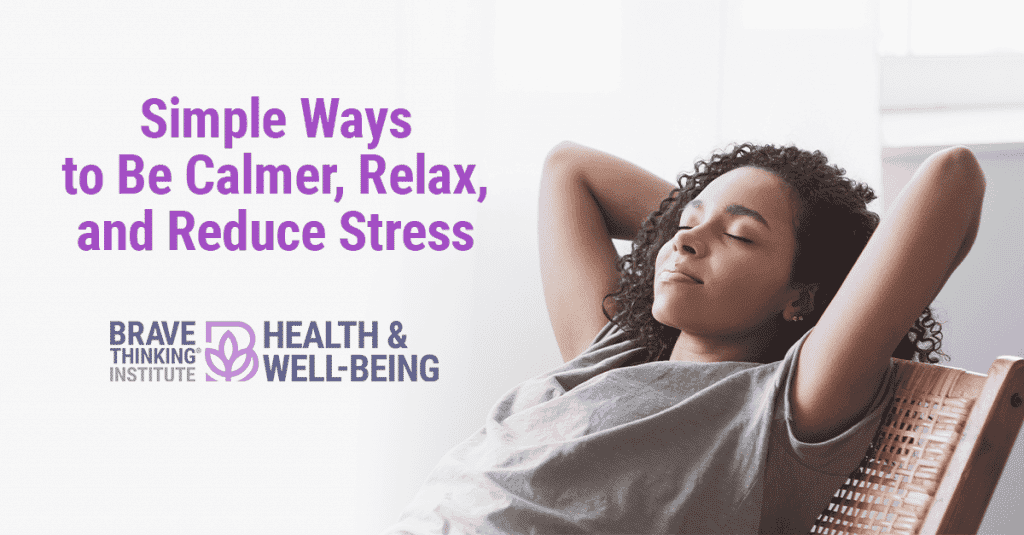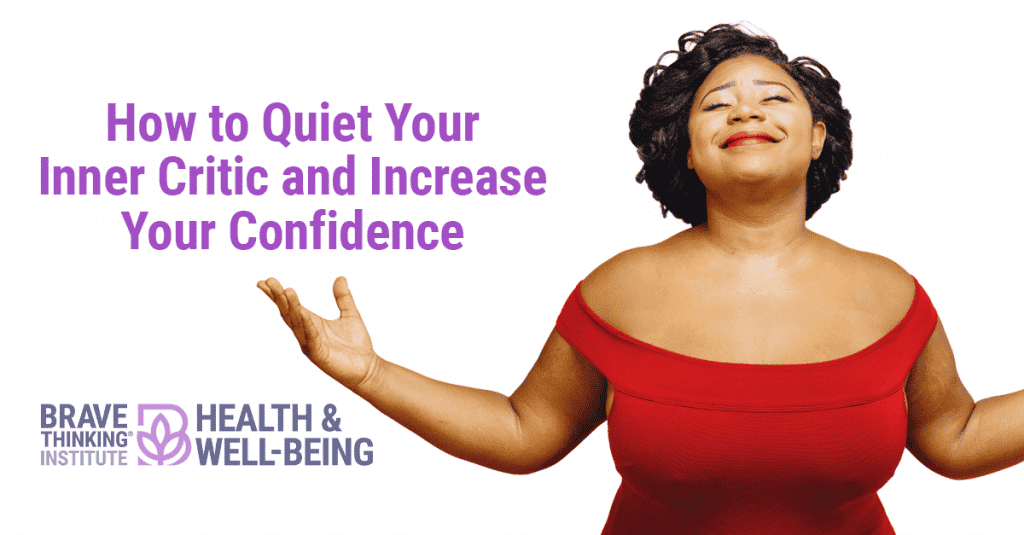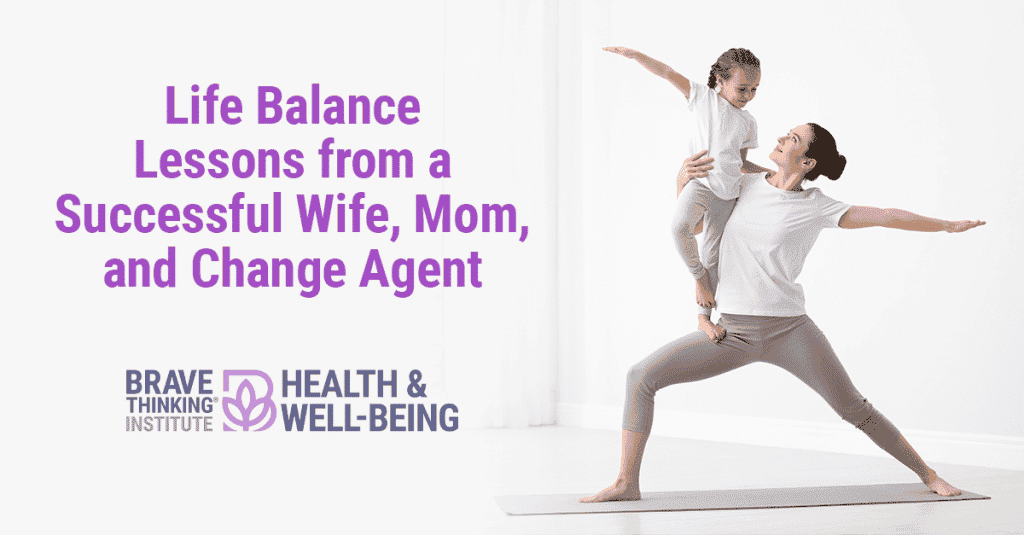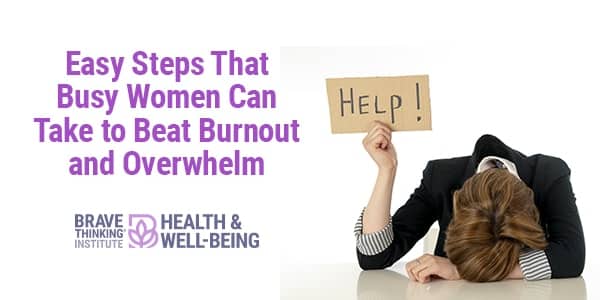How to identify stress symptoms and find the blessings in stressful situations.
“To achieve great things, two things are needed: a plan and not quite enough time.” – Leonard Bernstein
I love the Leonard Bernstein quote above because it highlights something that we don’t often talk about — certain stress can actually be beneficial.
Sometimes we perform really well under pressure and reach unbelievable goals on tight deadlines. Of course, most of the time, living highly stressful lives, and not building in time to recover and rejuvenate is not good for our health, emotions and mental clarity.
If you’ve ever felt overwhelmed, burned out, or at your wit’s end, this post was written specifically for you.
I’ve been right where you are. In my younger years, struggling with overwhelm, I often wondered how highly successful and super busy people seemed to always be thriving.
How do they manage to show up looking calm and ready to handle the world?
I’ve had those same self-conscious moments, and I want you to know that you’re not alone. I’ve been there. And I’ve found ways to not only overcome my stress, but to find the blessings and lessons at these points in my life.
At Brave Thinking® Institute, we know that you are far more powerful and contain more potential than any circumstance, situation, or condition. And that power you hold within includes the power over whatever stress you’re experiencing.

In my fifteen years of transformational coaching, I’ve worked with thousands of incredible, heart-centered souls. My coaching clients all want to create and live a life they love. One of the biggest challenges they often face is handling all the demands that fly at them simultaneously.
Isn’t that the challenge for so many of us? So many of the lovely Souls we are called to support are change agents striving to do it all, and we refuse to accept mediocre results.
Today I’ll give you three simple ways to reduce the overwhelm and stress in your life (my three proven Rs).
Is Stress all stress bad?
You might chuckle at this question. I’m sure you can give me a laundry list of stress in your current life. However, I invite you to look at your life and stress not from the eye of the hurricane, but by rising above it all for a moment and taking a bird’s eye view.
If you look for a definition of stress, the most common will be in medical terms. It’s defined as emotional or physical strain and your body’s reaction to these external (and sometimes internal) influences.
We all have stress. We are all influenced by the constraints and challenges in life. After all, we are having a human experience, and stress is part of that.
There are two schools of thought on stress, and I encourage us to look at each, because I think they both have value.
One school of thought says that preventing and managing stress can absolutely lower our risk for health conditions, such as heart disease, high blood pressure, and depression.
The second school of thought relates to new research from Stanford psychologist, Alia Crum, called the Stress Mindset. This school of thought says that it’s not the stress itself that is damaging, but the way that you view it.
In other words, your mindset is the determining factor on whether stress will be harmful or helpful to you.
I see both of these schools of thought as having merit. We must prioritize our ability to manage stress in order to improve our overall mental, emotional and physical health. This includes knowing how to set healthy boundaries for yourself and learning to say “no” to some requests.
We also must consider how we view stress, how we show up in times of stress, and what our perspective is in the face of these life scenarios. Viewing stress as helpful instead of harmful is absolutely associated with better health, emotional wellbeing and productivity.
Viewing Stress as a Brave Thinker
Let’s talk for a minute about how you view stress. As Brave Thinkers, we believe that thoughts become things. Life is not happening to us. We are co-creating the results that we would love to see in our lives.
Common hour thinking, which relies on probabilities and old paradigms, would have you believe that stress is happening to you. That you’re a victim of stress and, therefore, you have no control over changing it.
As Brave Thinkers we believe that life is happening for you, with you. The situations, conditions, and even the things stressing you out serve a purpose for your ultimate growth.
I believe that every situation in my life is for my spiritual growth and awareness. I like to call this our spiritual life school.
If you look at stress in this light, it’s the equivalent to any problem you would have in school. If you have a math problem, it’s designed so that you learn and grow your math skills.
When you have a life problem, it’s designed so that you learn and grow your life skills.
Stress is designed to help us learn and become all that we’re meant to be.
Let’s be clear, none of this is saying that all stress is good. We must work to reduce harmful stress and find best practices to relax. At the same time, our mindset makes a difference in how these pressure situations impact our health, emotional and mental wellbeing.
I have a bit of experience with this as a wife, mother of three, entrepreneur, and someone who has a long background in the corporate world, before launching my current business. I’ve found it very difficult and stressful to juggle the many demands of a busy life many times.
I hit those periods of burnout. I used to work sixty plus hours a week, felt like I had little time for the people who matter, and even stopped exercising.
I can tell you, that is not the recipe for a happy life.
I made a powerful decision at my lowest point to get help, coaching, and make a change, and you can as well.
So, let’s talk about how to spot the signs of stress and what you can do to reduce and prevent it.
Signs of Stress
Symptoms of stress can be wide and varied. Some people feel it physically with nausea, upset stomach, headaches and even muscle pain. Other people will have feelings of anxiety, difficulty concentrating and mood swings.
It’s important to note your stress symptoms because they can impact your mental, emotional and physical health.
Many people also turn to coping mechanisms that aren’t healthy, even without realizing it. Some common issues that stem from stress can include alcohol and drug consumption, overeating, and tobacco use. While exercise is healthy, sometimes people even use that as a way to punish themselves and “whip their body into shape”, which can lead to injury.
I’m going to list some of the most common stress symptoms, so you can easily identify.
Emotional Symptoms of Stress
- Feelings of worry
- Feelings of anxiety
- Feelings of being overwhelmed
- Difficulty concentrating
- Irritability
- Mood swings
- Depression
- Low self-esteem
- Inability to connect or engage with things
- Difficulty relaxing
- Lack of interest or excitement
Physical Symptoms of Stress
- Stress eating or lack of appetite
- Changes in sleeping patterns (both insomnia and sleeping more hours than usual)
- Using alcohol, drugs, tobacco, or other unhealthy coping mechanisms
- Muscle tension
- Back pain
- Diarrhea and constipation
- Nausea
- Dizziness
- High blood pressure
- Chest pains
- Panic attacks
- Loss of sex drive
Knowing Yourself to Face Your Stress
I mentioned earlier that there are two schools of thought on stress… that reducing it is important for your health and that the way you view stress has a tremendous impact on how it affects you.
In order to use both of these schools of thought in your life, you must understand what your stress is and where it comes from. This will help you create the best action steps for more positive outcomes.
As I shared earlier, I’ve had my own difficulties with stress. Fifteen years ago, before I launched my work in the world as a transformational coach, I was suffering from severe burnout. I couldn’t even make time to exercise, which is so much a part of who I am and what makes me happy.
If I look back on what I was doing then, I can list off so many of the symptoms of stress I gave you above. I was having difficulty sleeping, digestive problems and all the aches and pains associated with stress.
I had a hard time focusing. I was snapping at my kids, which was not the kind of mom, wife, or person I wanted to be. I was unhappy, and felt awful.
But that was before I stepped into my life purpose as a transformational coach!
For me, the stress was largely coming from my work and the fact that I wasn’t fulfilled in the career I had. I did love many aspects of it, but it wasn’t my true calling. It wasn’t as fulfilling as what I am doing today.
Work is one of the main causes of stress for many people, but you can experience stress in any area of your life. It might stem from relationships, finances, or many other areas of life.
They say to never make big decisions while you’re grieving, and that’s because the stress can cause you not to think clearly.
Deciding where the stress comes from can help you determine whether it’s a stress you need to work through or an area of your life you need to change.
3 Tips to Reduce Stress (the 3 R’s)
One of the most powerful ways to decrease stress and calm your mind is simply by breathing. In an article on How to Handle a Problem, my mom and founder of Brave Thinking Institute, Mary Morrissey, explained her technique for breathing to quiet her mind and help her show up as her best self during stressful times
It’s a simple technique of breathing in deeply, and then blowing out as if you’re blowing through a straw. Do this three times, and you’ll find your heart rate and anxiety decrease, allowing you to gather your thoughts and calm yourself. I love this breathing technique, and it’s one I use often.
Another technique that I use is one I call the three R’s:
- Resiliency Mindset
- Reverse Engineer Your Calendar
- Recovery Time
Resiliency Mindset
The first R stands for having a resiliency mindset.
Being resilient doesn’t mean that you won’t experience stress or emotional upheaval. There is no mindset that eliminates every possible suffering from your life.
What resiliency does do, however, is give you the ability to bounce back from adversity. A resiliency mindset gives you the confidence and courage to come through any challenges and appreciate the experience. You feel more resourceful, confident and wiser for having overcome your obstacles.
The resiliency mindset helps you face things like overcoming your own inner critic and situations that you face without warning.
Reverse Engineer Your Calendar
You are in charge of your calendar.
Reverse engineering simply means to install recovery moments into your day. Otherwise, you might feel like you’re on a treadmill that’s never ending, with no moments to pause or take any time for yourself.
When you look at your calendar, instead of scheduling meetings wherever there is empty space, plan your breaks. Make sure you leave time for a meal break, time to get up from your desk and walk around, or simply time to stretch.
Taking that time to breathe and not think about work for a few moments will actually recharge you and make you more productive in the time you are working.
I have found if I don’t pre-plan for my breaks in advance, it’s easy to get booked back-to-back-to-back without even realizing it.
You must prioritize yourself by preparing for high moments of stress with reverse engineering your calendar. When you know your life will be especially busy with a new project, event or commitment, pause. Look at your calendar and schedule your times. Start at the event or end point and plug in recovery time each day leading up to it.
Recovery Time
The last R is for Recovery Time. This is your time to refuel, rest and recharge.
When we don’t think of proactive ways to refuel, rest and recharge, we often find stress gets unmanageable. This is when we’re more likely to default into reactive coping mechanisms, like overeating, alcohol and drug abuse. This is because addictions give us a boost of endorphins that we’re craving.
But there are much healthier ways to get those endorphins.
The deep breathing we talked about and movement breaks can give you a boost. Make time to refuel yourself and drink plenty of water. Taking even ten short minutes to rest your eyes and recharge your brain can be a huge help.
Mastering Your Stress and Boosting Your Confidence
Today we’ve talked about what stress is and how you can identify symptoms in your own life. You’ve also learned the two schools of thought and how your mindset can improve your ability to overcome the stresses in your life. And I’ve given you my three R’s, which never fail in reducing my own stress.
I’d also like to give you a gift to help rejuvenate your mind, body and soul. My free Confidence Kit comes with three fun five minute practices. If you’re ever feeling stressed, even when you’re strapped for time, you can use this little practice for big results.
This is great if you’re feeling down or self-conscious. It can help you capture that inner spirit to feel more confident, beautiful and loved in your own skin. Download it today!
Until next time, think bravely and act boldly!




Leave a Reply